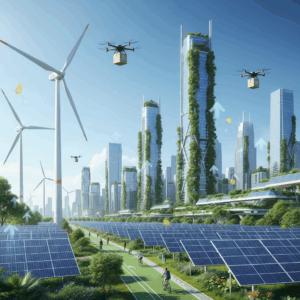Concept and foundations of free trade
He free trade It is an economic system that seeks to eliminate or reduce barriers to the exchange of goods and services between countries. It promotes greater global economic integration.
This model allows nations to specialize in efficient production, optimizing resources and fostering international competitiveness. This, in turn, encourages economic growth.
Furthermore, free trade facilitates the entry of foreign investment, modernizes productive sectors, and generates new job opportunities linked to the global market.
Definition and functioning of free trade
Free trade consists of allowing the free and unrestricted exchange of goods and services between countries. It eliminates tariffs, quotas, and other barriers that limit foreign trade.
Operating on the basis of international agreements, this system seeks to have each country specialize according to its competitive advantages, increasing economic efficiency and productivity.
It fosters global competition, forces companies to innovate, and improves the quality and variety of products available to consumers in the local market.
Reduction of trade barriers
Trade barriers include import taxes, quotas, and restrictive regulations that hinder trade between countries. Reducing them is essential for free trade.
By eliminating these barriers, the flow of goods and services is facilitated, generating lower costs for consumers and producers, and increasing trade volume.
This decrease also attracts foreign investment and helps modernize productive sectors, although it requires countries to adapt to international competition in order to remain competitive.
Advantages of free trade for countries and consumers
He free trade It boosts economic growth by allowing countries to specialize in sectors where they are most efficient. This improves productivity and global competitiveness.
For consumers, free trade provides access to a wider variety of quality products at more competitive prices, leading to a better experience and choice in the market.
Furthermore, trade liberalization stimulates innovation and efficiency in companies, resulting in more modern products and advanced technology available to the consumer.
Economic growth and productive specialization in countries
Free trade promotes productive specialization according to the comparative advantages of each country, enhancing the efficient use of resources and international competitiveness.
This specialization drives the modernization of productive sectors and attracts foreign investment, which opens up new job opportunities and strengthens the local economy.
In this way, countries can concentrate their efforts on profitable productive activities, achieving more sustained economic growth and greater global integration.
Benefits for consumers: variety, quality and prices
Consumers benefit from free trade with a wide range of diverse products, which increases competition and improves the quality available on the market.
International competition reduces prices by eliminating monopolies and promoting efficiency, allowing for greater purchasing power and access to goods that were previously inaccessible.
This greater diversity and affordability positively impacts the quality of life, expanding options and satisfying specific consumer needs.
Innovation and business efficiency
Free trade encourages innovation in companies by increasing global competition, forcing them to improve their processes and products to remain competitive.
This dynamic drives the adoption of more advanced technologies and more efficient practices, benefiting both producers and consumers with better solutions.
The constant pursuit of efficiency and renewal strengthens productive sectors and contributes to sustainable economic development in participating countries.
Disadvantages and risks associated with free trade
Free trade presents significant challenges, especially for local industrial sectors that cannot compete with cheaper imported products. This can lead to job losses.
Furthermore, trade liberalization without adequate regulation can encourage economic concentration and increase the vulnerability of less developed economies to global competition.
These risks raise the need for policies that mitigate negative impacts, protect employment, and promote equity in countries affected by free trade.
Impact on local industrial sectors and employment
Local industrial sectors face strong pressure from competition from cheaper foreign products, which may lead to the closure of domestic companies.
Job losses in non-competitive industries are a direct consequence, affecting the domestic economy and increasing job insecurity in dependent communities.
This situation creates dependence on imports and weakens local productive capacity, reducing economic diversification and local industrial development.
Increased inequalities and unfavorable conditions
Free trade can widen inequalities, since the benefits are not distributed equitably between or within countries, favoring large corporations.
Less developed countries tend to rely on low-value exports and receive less favorable investment conditions, limiting their sustainable growth.
Likewise, industrial relocation to countries with laxer labor or environmental regulations encourages social and environmental dumping, exacerbating unfavorable conditions.
Social and economic implications
Free trade has profound social and economic implications These implications affect both countries and their populations. They can lead to dependency and environmental problems.
It is essential to analyze how free trade can encourage social and environmental dumping, as well as create challenges to protect vulnerable sectors from unequal global competition.
Therefore, free trade requires complementary policies that mitigate these risks in order to achieve inclusive and sustainable development, balancing economic benefits and social justice.
Dependence and social and environmental dumping
Economic dependence arises when countries rely excessively on specific imports or exports, limiting their autonomy and stability.
Free trade can encourage social and environmental dumpingwhere companies move production to countries with lower labor and environmental standards, affecting rights and ecosystems.
This can lead to a race to the bottom in regulations, creating precarious working conditions and environmental damage that negatively impacts local communities and the planet.
Interesting fact about dumping
Social dumping involves practices such as low wages and a lack of labor protections. Environmental dumping, meanwhile, translates into unrestricted pollution and resource exploitation.
Both types of dumping distort the market, allowing products with unreflected external costs to compete unfairly, discouraging ethical and responsible standards.
Challenges to the protection of vulnerable sectors
Vulnerable sectors, such as small businesses and workers in affected industries, face difficulties competing against large multinationals or cheaper imported products.
Protecting these sectors requires public policies focused on training, social security, and the promotion of local industries to prevent unemployment and social exclusion.
Furthermore, regulation must ensure that free trade does not compromise labor rights or degrade living conditions, seeking a balance between openness and social justice.






